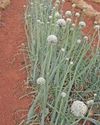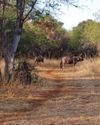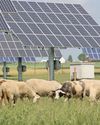
How long have you been involved in the avocado industry and in what capacity?
Avocados have been part of my life since I started at Westfalia in January 1986. I have held various management positions in operations and the commercial environment and served on the board of the South African Avocado Growers' Association (SAAGA) from 1994 to 2013.
Since 2017, I have been a shareholder and director in three farming operations in the Southern Cape, which produce mainly avocados but also soft citrus and macadamias.
How does the avocado industry differ in the northern provinces compared with the Western Cape?
Western Cape avocados have a later window in the market, as harvesting of the Hass and Gem cultivars starts in late September (mostly young trees) or the beginning of October, and runs until the end of December.
The plantings at Soekmekaar and Magoebaskloof in Limpopo and certain areas in KwaZulu-Natal have marketing windows similar to those of avocados from the Southern Cape.
How do the unique agricultural challenges faced by avocado growers in the Western Cape, such as soil variability and wind, contrast with those in other regions?
From a technical viewpoint, the variation in soil types in the Western Cape is a challenge. Avocados prefer well-drained soil.
Soil mapping is important when planning avocado orchards, as irrigation blocks should be determined by soil type. This can complicate irrigation planning and management practices. On a 20ha piece of land in the George area, there can be five to six different types of soil.
هذه القصة مأخوذة من طبعة July 26, 2024 من Farmer's Weekly.
ابدأ النسخة التجريبية المجانية من Magzter GOLD لمدة 7 أيام للوصول إلى آلاف القصص المتميزة المنسقة وأكثر من 9,000 مجلة وصحيفة.
بالفعل مشترك ? تسجيل الدخول
هذه القصة مأخوذة من طبعة July 26, 2024 من Farmer's Weekly.
ابدأ النسخة التجريبية المجانية من Magzter GOLD لمدة 7 أيام للوصول إلى آلاف القصص المتميزة المنسقة وأكثر من 9,000 مجلة وصحيفة.
بالفعل مشترك? تسجيل الدخول

When short-term rentals make sense
Bianca Smit, national operations manager at CFAO Equipment SA, outlines factors to consider when choosing a rental equipment partner.

The timing of onion sowing is critical
Each onion variety has a different resistance to bolting, thus growers need experience and knowledge to guide them,

Understanding cannabis and hemp regulations in South Africa
South Africa's cannabis and hemp regulations remain a topic of debate and uncertainty, particularly when it comes to commercial use and small-scale production. Cannabis experts Shaad Vayej and Trenton Birch spoke to Octavia Avesca Spandiel about the challenges that small-scale cannabis and hemp farmers face.

European seed's influence on the US cannabis market
The expansion of European cannabis seed onto the US market is not just about economic growth; it’s also about enriching the landscape of US cannabis with diversity, innovation and education,

'It's important to get the right tool for the job'
The adoption of technology is crucial to sustaining efficiency gains and beating the cost-price squeeze in the agriculture sector.

A brilliant bushveld break between Bela-Bela and Modimolle
The distinctive touch, diligence, and 24/7 customer care are just a few of the reasons you should visit four-star Tourism Council-graded Pumula Game Farm,

John Deere: elevating performance and efficiency in modern farming
In the fast-paced world of farming, the right tools make all the difference.

The naval disaster Winston Churchill tried to hide
Three British warships were sunk by German naval gunfire on a dark day early in World War II, but the heroes who fought back received only muted recognition, possibly to avoid bad publicity,

Breaking down the principles of regenerative farming
Jean Hugo, a post-graduate student at the Tshwane University of Technology, and Leon Hugo, author on environmental matters and former professor of geography at the University of Pretoria, write about the importance of regenerative agriculture for small-scale farmers, and the challenges related to making the shift.

Ectoparasite control: more tips for livestock farmers
To reduce the mayhem that uncontrolled ectoparasites can create for communal farmers, it’s best to adopt a holistic approach in conjunction with veterinary remedies,